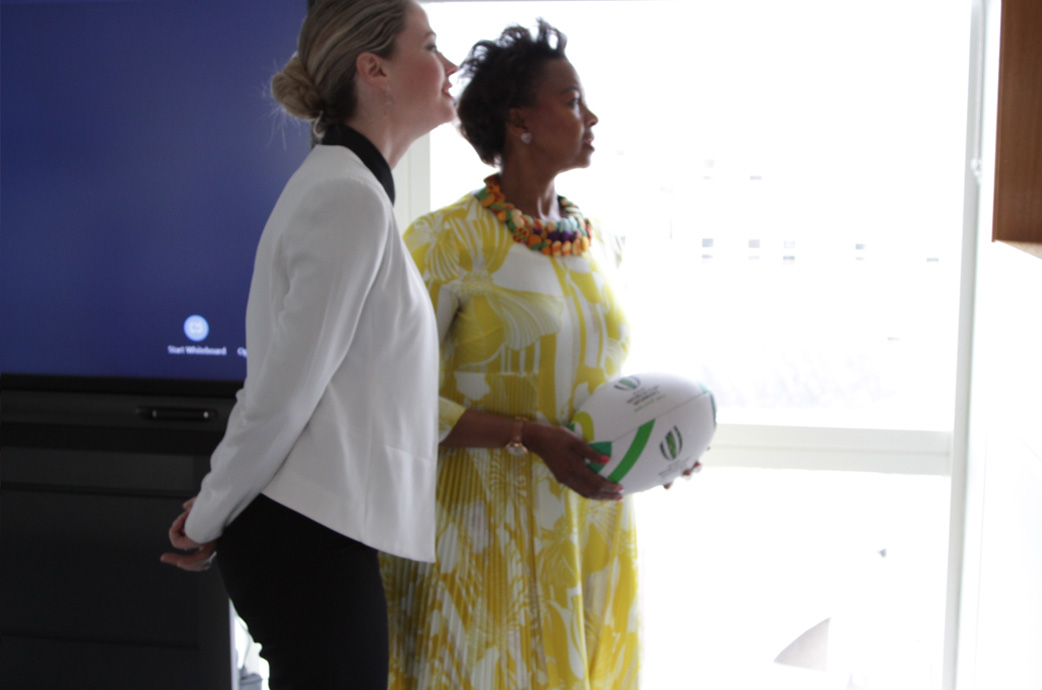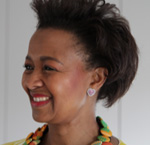How to create positive change in board diversity? What is the role of chairmen in driving the diversity agenda? What advice can a pioneer in the economic empowerment of women give to aspiring female talent? These were only some of the topics Egon Zehnder’s Heloise Nel discussed with Wendy Luhabe, the first female Independent Director at World Rugby’s Executive Committee.
Heloise Nel: So you and I are both from South Africa, and I thought we could perhaps discuss a little bit more and explore our definition of diversity vis-à-vis other countries.
Wendy Luhabe: If you look at the similarities between South Africa and the rest of the world, there are three similarities. Firstly, the fact that the business world everywhere is white male dominated, and it's patriarchal.
The second element is the fact that until women reach a critical mass, the business environment is not going to change.
The third element is the fact that given that women are underrepresented in boards and in most industries, you find that companies tend to be more comfortable with women who think like themselves or women who look like themselves or women who are most likely to be subservient, who are not going to challenge the status quo.
You are described as an economic activist with a specific aim to bridge the gap between women and access to the economy. How do you apply that nowadays in the board room?
It's really making sure that I actively and deliberately bring in more and more women, because I understand that until we have a critical mass in all of these roles, in all sectors of society, in all levels of leadership, we will not actually normalize society because this is not so much about changing.
Is there an active conversation around diversity and looking at the executives in the pipeline?
The conversations have definitely changed from what they were in the '90s. In the '90s, they were primarily about the financial results and the profits. And I've seen how they have changed over the years. You'll find that boards are now discussing strategy, for example.

The interview with Wendy Luhabe at the Headquarters of World Rugby in Dublin was conducted by Heloise Nel, Egon Zehnder, Johannesburg.
How does the role of chairmen differ – or is there a different role to be played by the chairman with regards to promoting diversity on boards?
I think that there's definitely a huge role that a CEO and the chairman of board can play in driving the diversity agenda, because if they're not behind it, then the rest of the directors tend to be impartial to it. But if they see that there is a huge commitment from the top, there tends to be support for it.
Where have you witnessed gains in diversity?
It's mostly where there are at least three women on the board. It encourages those women who have a contribution to make to make it because there are other women. They're not intimidated.
You currently serve on the board of a diverse set of global organizations, How have you seen the focus on diversity differ amongst these organizations?
I think that they've all come to the realization that they need different skills, different thinking on their boards, and they have therefore deliberately gone out of the norm to find people that they believe would help them achieve that.
So what advice would you give to young, aspiring female board members?
People need to know what you stand for. They need to know that you are effective as a woman and that you are able to add value, that you'll be an asset if they bring you to their business. And you need to have relationships with people who make those decisions. If your networking is strategic and is purposeful, it can then work to your advantage.

Wendy Luhabe
Wendy Luhabe, from South Africa, has more than 26 years of experience as a non-executive director in diverse industries and public sector companies, 24 years of experience as a social entrepreneur and 10 years of experience in marketing management. Luhabe is chair and founder of the Women Private Equity Fund, South Africa’s first private equity fund for women, and has held governance roles with Vodacom, the Industrial Development Corporation (IDC), the International Marketing Council (IMC) and the Johannesburg Stock Exchange. She currently serves as board member of both IMD and The Abraaj Group.
PHOTOS: BLAINE RENNICKS
 Shaping Successions
Shaping Successions
 Advancing Governance
Advancing Governance
 Discovering Leaders
Discovering Leaders
 Developing Leadership
Developing Leadership